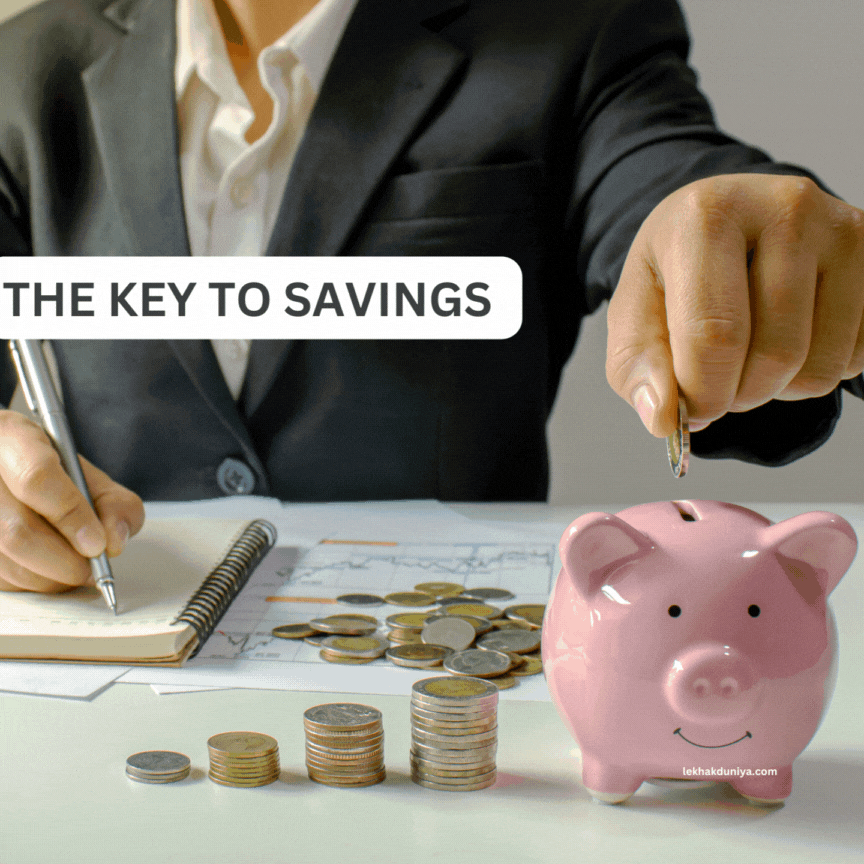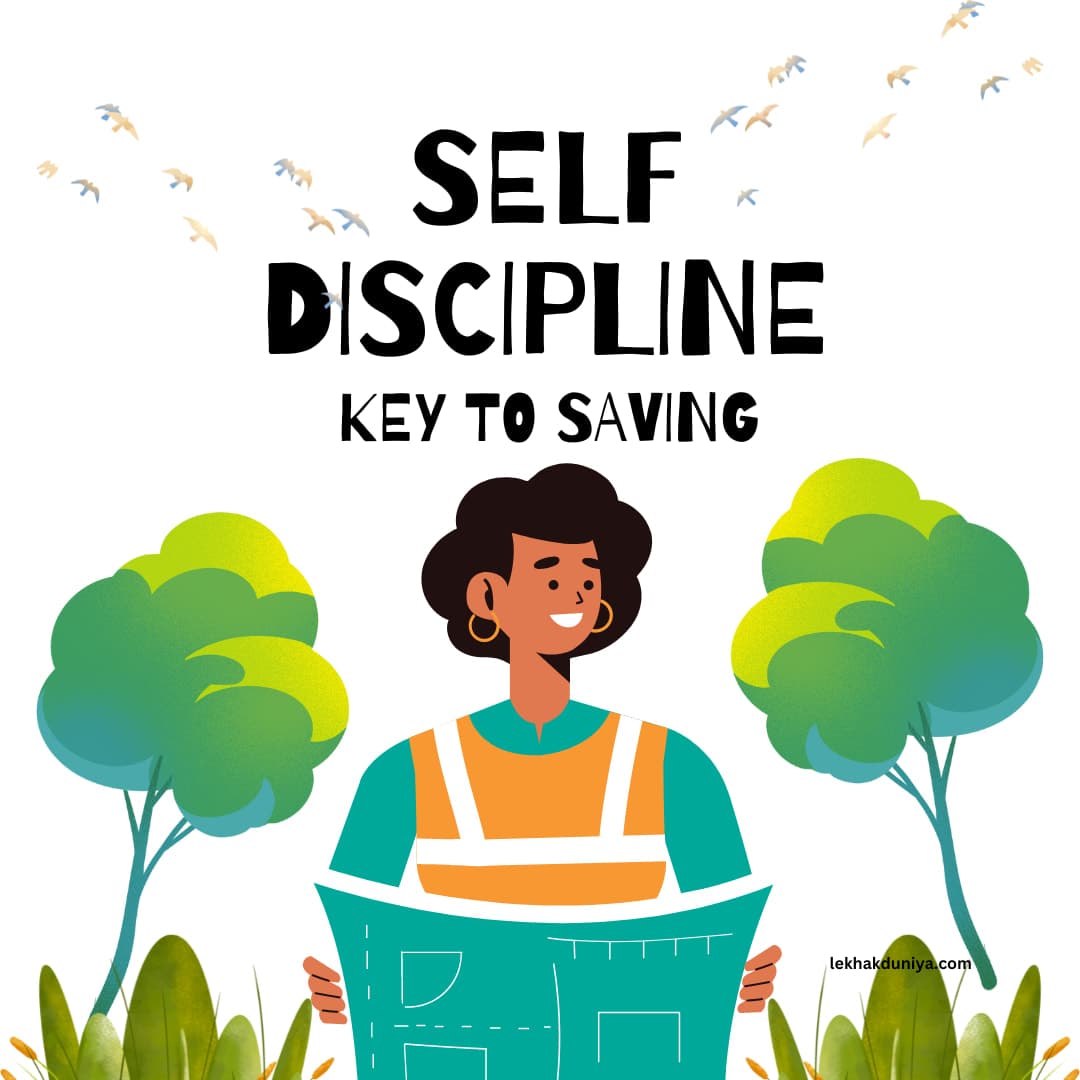In a world increasingly driven by instant gratification, saving money effectively can be a daunting challenge. You might wonder, Why is self-discipline the key to becoming a good saver. This essential trait is more than just a personal virtue; it’s a critical factor in achieving financial stability and success. This comprehensive guide will explore how self-discipline influences your saving habits, offer actionable strategies to develop them, and highlight the significant benefits it brings to your financial life.
Table of Contents
The Power of Self-Discipline in Saving
What is Self-Discipline?
Self-discipline involves controlling your impulses, emotions, and behaviors to achieve long-term goals. In the realm of personal finance, it means resisting the lure of spontaneous spending and sticking to a structured savings plan. Understanding why is self-discipline the key to becoming a good saver starts with acknowledging that without it, even the most carefully planned financial strategies can collapse. Self-discipline helps you stay on track with your goals and make decisions aligned with your long-term financial well-being.

Key Traits of Self-Discipline
To appreciate why is self-discipline the key to becoming a good saver, consider these key traits:
- Focus: Staying concentrated on your financial objectives despite short-term distractions.
- Patience: Recognizing that financial success requires time and ongoing effort.
- Impulse Control: Managing immediate desires to ensure adherence to your budget and savings plan.
How Self-Discipline Boosts Your Saving Success

- The Role of Consistent Budgeting: One of the primary reasons why is self-discipline the key to becoming a good saver is its impact on budgeting. A well-maintained budget acts as your financial roadmap, detailing how much to allocate for various categories and how much to save. Self-discipline ensures you follow this budget, avoiding overspending and supporting consistent savings toward your financial goals.
- Avoiding Impulsive Spending: Impulsive purchases can significantly hinder your saving efforts. Here’s where self-discipline proves crucial. By exercising self-control and evaluating whether a purchase aligns with your financial goals, you can avoid unnecessary spending. This disciplined approach allows you to redirect funds into savings, reinforcing why is self-discipline the key to becoming a good saver.
- Focusing on Long-Term Financial Goals: Achieving significant financial milestones—such as buying a home, funding education, or planning for retirement—requires self-discipline. It involves making sacrifices now for greater rewards in the future. By maintaining discipline in your saving habits, you ensure steady progress towards these long-term goals, even when faced with short-term temptations or challenges.
Effective Strategies to Build Self-Discipline for Saving

- Set Clear Financial Goals: Clear and specific financial goals are essential for understanding why is self-discipline the key to becoming a good saver. These goals provide direction and motivation, making it easier to stay disciplined. Whether saving for an emergency fund, a vacation, or retirement, having well-defined objectives helps maintain focus and resist impulsive spending.
- Create and Stick to a Budget: Creating and sticking to a budget is essential for understanding why is self-discipline the key to becoming a good saver. Begin by mapping out all your sources of income and categorizing your expenses into clear categories such as essentials, savings, and discretionary spending. This structured approach helps you allocate your funds effectively and ensures that you prioritize your financial goals. While sticking to your budget demands consistent effort and self-control, it is a crucial practice for effective money management and achieving long-term financial success.
- Automate Your Savings: Automation is a powerful method that illustrates why is self-discipline the key to becoming a good saver. By setting up automatic transfers from your checking account to a savings or investment account, you ensure that a portion of your income is saved before you have the chance to spend it. This technique minimizes the temptation to use those funds for non-essential purchases and helps maintain consistent savings.
- Track Your Expenses: Monitoring your expenses is another practical way to develop self-discipline. Utilize budgeting apps or financial tracking tools to keep an eye on your spending habits. Regularly reviewing your expenditures helps you stay aware of any deviations from your budget and reinforces your commitment to saving. This ongoing awareness is a crucial aspect of why is self-discipline the key to becoming a good saver.
Overcoming Common Obstacles to Self-Discipline
- Manage Temptations and Triggers: Financial temptations, such as sales promotions and social pressures, can undermine your saving efforts. Identifying and managing these triggers is essential for maintaining self-discipline. Consider strategies like unsubscribing from marketing emails, setting spending limits, or finding alternative ways to handle stress without resorting to spending. Recognizing these triggers helps illustrate why is self-discipline the key to becoming a good saver.
- Build Financial Resilience: Building resilience is crucial for sustaining self-discipline, especially during tough times. Establishing a financial cushion or emergency fund provides stability and helps you stay disciplined when unexpected expenses arise. Developing resilience involves preparing for financial setbacks and finding ways to stay on track with your savings goals despite difficulties.
Benefits of Practicing Self-Discipline in Saving

- Achieve Financial Security: One of the most significant benefits of disciplined saving is the financial security it offers. Consistent saving builds a financial buffer that protects you from emergencies and alleviates financial stress. This sense of security allows you to focus on achieving your long-term goals without the constant worry of financial instability.
- Reach Your Financial Goals: Self-discipline is crucial for reaching major financial milestones. Whether purchasing a home, starting a business, or retiring comfortably, disciplined saving sets the stage for these accomplishments. By consistently saving and investing, you transform your financial dreams into reality.
- Enjoy Peace of Mind: Having control over your finances and a clear path to achieving your goals brings peace of mind. Understanding why is self-discipline the key to becoming a good saver emphasizes its role in enhancing your overall well-being. Knowing that you are prepared for the future provides a sense of calm and confidence.
Inspiring Real-Life Success Examples
Real-life success examples can provide powerful motivation and practical insights into why is self-discipline the key to becoming a good saver. Here are a few compelling examples:
1. Emma’s Journey to Financial Freedom
Emma, a 32-year-old graphic designer, faced the challenge of managing her finances on a modest salary. Determined to achieve financial stability and buy her dream home, Emma implemented a disciplined approach to saving:
- Setting Clear Goals: Emma established specific targets, including an emergency fund and a down payment for a house.
- Creating a Budget: She developed a detailed budget and reviewed it monthly.
- Automating Savings: Emma set up automatic transfers to her savings and investment accounts.
The Results: Within a few years, Emma accumulated a substantial emergency fund and saved enough for her dream home. Her self-discipline provided financial security and peace of mind. Emma’s story highlights why is self-discipline the key to becoming a good saver and how it leads to achieving major financial milestones.
2. Mark’s Path to Debt-Free Living
Mark, a 40-year-old teacher, managed significant debt from student loans and credit cards. He adopted several disciplined strategies:
- Prioritizing Debt Repayment: Mark focused on paying off high-interest debts first using the snowball method.
- Adjusting Spending Habits: He cut unnecessary expenses and adopted a frugal lifestyle.
- Building an Emergency Fund: Mark set aside a portion of his income to build a financial cushion.
The Results: Mark paid off his debt within five years, reducing his stress and achieving financial freedom. Mark’s experience underscores why is self-discipline the key to becoming a good saver and demonstrates how disciplined debt management can lead to significant financial improvement.
3. Sarah’s Retirement Savings Success
Sarah, a 45-year-old marketing manager, needed to make up for lost time in her retirement savings. She took the following steps:
- Increasing Contributions: Sarah maximized her retirement account contributions.
- Cutting Costs: She reduced discretionary spending and redirected savings into her retirement fund.
- Regularly Reviewing Investments: Sarah worked with a financial advisor to optimize her investment strategy.
The Results: Sarah built a substantial retirement fund, enabling her to retire comfortably and pursue her passions. Her success illustrates why is self-discipline the key to becoming a good saver and how strategic adjustments can lead to achieving long-term financial goals.
Why is self-discipline the key to becoming a good saver? Its ability to promote consistent budgeting, control impulsive spending, and achieve long-term financial goals is the answer. Self-discipline is the cornerstone of successful saving, shaping your financial habits and guiding you toward stability and success.
Start developing your self-discipline today by setting clear goals, creating a budget, automating your savings, and tracking your expenses. These steps will help you take control of your financial future and become a successful saver.








